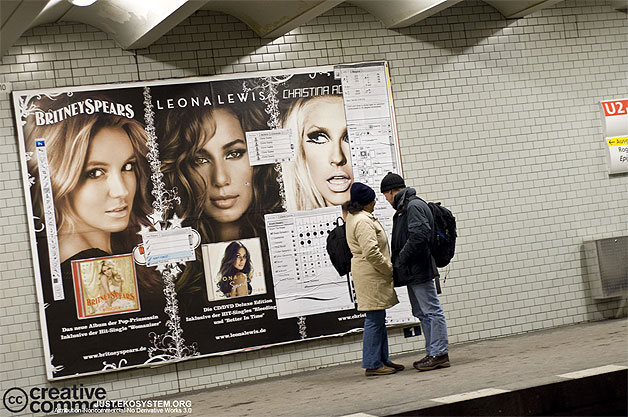In Berlin, a subway poster featuring Britney Spears, Leona Lewis and Christina Aguilera was rather creatively defaced — with large stickers that make the poster look as though it’s currently being edited inside a Photoshop application:


You can view a full series of photos at Gizmodo.
I couldn’t help but think that these were a) really creative, b) incredibly cool and c) quite arguably, not knowing the defacer’s intentions, a strong feminist statement about airbrushing and impossible patriarchal beauty standards.
Upon further reflection, I saw that they could be just general ad busting attempts with no feminist intentions whatsoever, and also potentially even making fun of women for attempting to live up to beauty standards thrust upon us. At Gizmodo, commenters additionally question how effective the tactic is when not everyone knows what Photoshop looks like. (I think most people familiar with computers would figure out the general idea, while those unfamiliar with computers would likely be lost.) I’d also probably prefer if it had been done on one of the many common “idealized” full body shots we see of women in advertising all the time, rather than just faces.
Still, I keep coming back to my original interpretation and thoroughly enjoying it. I think that’s also something quite lovely about this kind of “vandalism,” which when done well can be a form of art — it’s open to interpretation.
So, what’s yours?
h/t Sociological Images